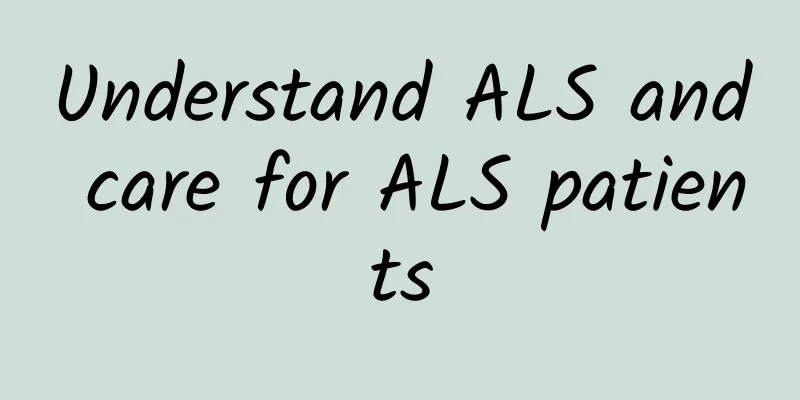Understand ALS and care for ALS patients

|
June 21 is World ALS Day. The medical name of ALS is amyotrophic lateral sclerosis, a neurodegenerative disease that affects the motor-related nerve cells in the brain and spinal cord, causing the death of motor neurons and making the brain unable to control muscle movement. The main clinical manifestation is the gradual atrophy and weakness of muscles, and the patient will eventually die of respiratory failure. The famous physicist Stephen Hawking, who passed away not long ago, was diagnosed with this disease at the age of 21 and eventually fought against it for 55 years. What causes ALS? Among ALS patients, only 5%-10% are familial and have a clear genetic background; 90%-95% of patients have no family history. Patients with a family history and some patients without a family history are all related to gene mutations. The gene mutations that have been discovered include SOD1, TARDBP, FUS, OPTN, ANG, UBQLN2, C9ORF72, etc. ALS affects both the body and the mind ALS attacks the nerve cells that control voluntary movement, making it increasingly difficult to move the arms, legs and face. While the disease doesn't usually affect a person's intellectual ability, some people may have depression or problems with decision-making and memory, according to the National Institute of Neurological Disorders and Stroke. Symptoms of ALS do not appear suddenly People with ALS don't suddenly wake up one day and can't move their legs or arms. Symptoms can be subtle at first and often go unnoticed. Early symptoms include spasticity, muscle tightness, stiffness, minor twitches, or difficulty chewing or swallowing. ALS is easily misdiagnosed as cervical spondylosis The average time for diagnosing ALS is about one year after the onset of the disease, which means it is discovered relatively late. The symptoms of ALS are mostly weakness in the limbs. In addition, the disease is more common in middle-aged people. Many patients mistakenly believe that it is caused by compression of the cervical or lumbar spine. As a result, most patients have undergone cervical or lumbar surgery and found that their symptoms did not improve, and then they were diagnosed with ALS. ALS cannot be cured but it can be treated ALS is so terrible, can it be treated? The answer is yes. The median survival period of ALS is only 3 to 5 years. Although it cannot be cured, it can be treated. Patients should not give up hope easily. For motor neurone disease, the core of treatment is four points: First, ensure adequate nutrition. Patients may eat less due to dysphagia, and the already fragile motor neurons will be lost more if they are not "full of food". If patients have dysphagia and their general condition is still good, gastrostomy surgery (i.e. placing a tube in the abdomen to solve the patient's nutritional problem) can be considered. If the surgery is delayed until the body is extremely weak, it will be difficult to complete. Second, ensure breathing. As the muscles responsible for breathing become weak, patients may have difficulty breathing. Based on the examination indicators of lung function, non-invasive ventilators can be used to help breathing, which can also help prolong survival. The third is to give drug treatment. At present, many drugs are still in the research stage, and some drugs have been proven to prolong the patient's survival. Fourth, careful care. The care of motor neuron disease can be described as a "long-term war of attrition". Patients do not have the strength to cough up phlegm, swallowing difficulties can easily cause choking and pneumonia, inability to turn over causes pressure sores, and huge psychological pressure, all of which require careful care to be avoided as much as possible. Nursing is a very important treatment for this disease. It is worth mentioning that "ALS" does not require excessive exercise, because overworking the muscles will increase the burden on motor neurons. This work is original to "Science Popularization China - Masters Talk on the Frontiers of Science and Technology". Please indicate the source when reprinting. |
Recommend
Gynecological diseases that women should pay special attention to
Women are very troubled by some gynecological dis...
"Growing up where it shouldn't be" is an endocrine disorder
If hair grows in places where it shouldn't, i...
How to take care of yourself after hysterectomy
Everyone loves beauty. Once a woman becomes old, ...
Medicines to relieve morning sickness
Most pregnant women will experience morning sickn...
How long does it take to get your period after a medical abortion?
Medical abortion is a very common method of abort...
Identify the "bad guys" in the fat family - trans fatty acids
Author: Cui Yihui, registered dietitian, master o...
Pregnant women dream of blood, Zhou Gong will help you interpret dreams
We have some strange dreams every day. Many peopl...
How to go through menopause safely? Seven methods are secrets
For every middle-aged woman, experiencing menopau...
What is the problem with short weight when buying hairy crabs online? How to claim compensation when buying hairy crabs online
We all know that hairy crabs are a very popular f...
Is uterine fibroids treated with hysterectomy?
We often see TV reports or friends around us who ...
"Aimeiyi" prevention and treatment knowledge series - AIDS
AIDS, the full name of which is "Acquired Im...
All the characteristics of a pregnant woman carrying a girl
The baby hasn't been born yet, and the pregna...
Can breastfeeding mothers drink honey water?
Honey water can be consumed during breastfeeding,...
How many days is it normal for menstruation to be delayed?
Women may often suffer from menstrual disorders d...









